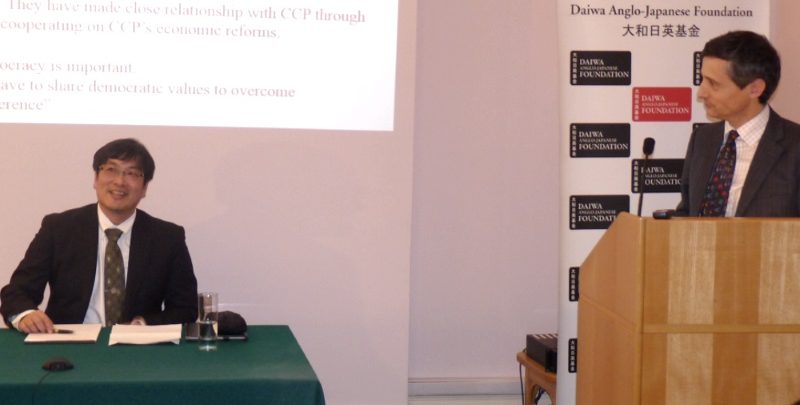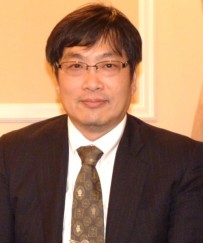 Seminar
SeminarTuesday 4 November 2014
6:00pm – 7:00pm
Beyond Nationalism: Sharing Democratic Values between Japan, South Korea, and the Overseas Chinese Diaspora
Drinks reception from 7:00pm
13/14 Cornwall Terrace (Outer Circle), London NW1 4QP
Organised by the Daiwa Anglo-Japanese Foundation
Dr Masato Kamikubo used the “democratic peace theory” to argue that sharing democratic values between Japan, South Korea and the overseas Chinese diaspora is one possibility to overcome the crush of nationalism and enmity between China, South Korea and Japan and avoid conflicts in the Northeast Asia region.
In regionalist international relations theory, it is argued that regional identity is necessary in order to avoid conflicts between countries within the region, and “nationalism” is regarded as an impediment. In northeast Asia, rising nationalist sentiment is preventing the formation of a regional identity, and the region is a hotspot of potential conflict between states.
However, Dr Kamikubo posits that there is the possibility of forming a regional identity between northeast Asian countries. The key players are the overseas Chinese communities, with whom South Korea and Japan can share free market and democratic values. In addition, the overseas Chinese do not share the same geopolitical interests as the People’s Republic of China (PRC). If the PRC dominates the Senkaku islands, Taiwan would be separated from the US-Japan security alliance, and it would also affect the business of overseas Chinese in Hong Kong, Singapore, and Malaysia. South Korea and Japan should try to strengthen the network with the overseas Chinese diaspora, which has a strong influence on the Chinese Communist Party, and may help to prevent conflicts in the Northeast Asia region.
About the contributors

Dr Masato Kamikubo
Dr Masato Kamikubo is Associate Professor at the Graduate School of Policy Science, Ritsumeikan University, and has a PhD in Politics and International Studies from the University of Warwick. His research interests are contemporary Japanese politics, public administration, and international political economy. Kamikubo was a former Lecturer at the Faculty of Law, Rikkyo University and the School of International Liberal Studies (SILS), Waseda University. He was also Assistant Professor at Waseda University Global COE Program: Global Institute for Asian Regional Integration (GIARI). Kamikubo publishes various articles about Japanese politics in magazines and on-line journals, such as the Chuo Koron (Central Review).